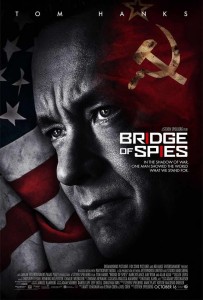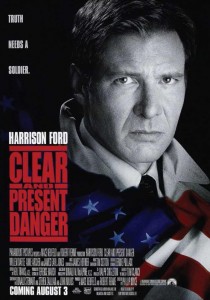Peter Fenzel, Mark Lee and Matthew Wrather overthink the books they actually might have liked reading in High School, and preview the eight nominees for Best Picture in the 2016 Oscars. We are not sure that a policy of compulsory reverence is the best way to get people to actually revere art.
→ Download the Overthinking It Podcast (MP3)
Become a Member of Overthinking It
Support the site you love and get cool stuff in return, including our two hour Nicholas Sparks Challenge podcast.Become a member today!
Subscribe to the Overthinking It Podcast
Want new episodes of the Overthinking It Podcast to download automatically?
Subscribe in iTunes
Subscribe with RSS
Tell us what you think!
Email us
(203) 285-6401 call/text
Your Panel
Further Reading
- Candide
- The Diary of a Young Girl
- Charles Dickens: A Tale of Two Cities, Great Expectations, Oliver Twist, and A Christmas Carol
- Affiliate Links: Candide, Anne Frank, Charles Dickens
- Oscar Nominations: The Complete List from The Hollywood Reporter


Apparently someone has made a Cards-Against-Humanity-style game out of Moby-Dick, how’s that for rehabilitating a work from the shackles of institutional reverence?
https://www.washingtonpost.com/entertainment/books/dick-an-american-literary-classic-as-a-ribald-card-game/2015/10/15/e65f9584-6ad5-11e5-aa5b-f78a98956699_story.html
It’s true that you can’t understand satire until you have a good understanding of the thing being satirized, which is why I’ve always wondered why the first joke we teach children is “why did the chicken cross the road.” It’s an anti-joke, to appreciate it you need to have heard other jokes and be familiar with their construction. Does this impulse come from the same place as Dad Jokes? Does this happen because it is fun for the joke teller to watch the child’s incomprehension?
When I saw trailers for Bridge of Spies I felt approximately zero desire to see it, but I recently learned that the screenplay is by the Coen brothers, and now I just don’t know what to think.
Speaking of which, did anyone see Hail, Caesar? I would be interested to hear what you thought about it. It deals very flippantly with subject matter that Trumbo treated extremely seriously, which was an interesting experience. I also think it may be attempting to do with Christianity some of what A Serious Man did with Judaism. It’s also really funny–it definitely isn’t as funny as The Big Lebowski, but I think it is their most successful comedy since then.
I’ve been very interested in Hail Caesar, but I’ve also been too busy to get to the theater.
Glad to hear the positive review, I think that bumps me up from interested to excited.
Alternative curriculum mercifully saved me from having the classics ruined. So when, for instance, I discovered For Whom The Bell Tolls it was breathtaking.
So I staunchly believe that the target of high-school lit assignments should be mediocre works, and the discussion should be more like pop-fixers. “How do we solve this problem a different way then the writer?”
So schools need more mediocre lit with low hanging improvements… like A Tale of Two Cities!
#BuyThisManAnEditor, #OutlineItBeforeYouWriteIt, #Bloviation4Syndication
ps. I’m torn as to whether “speed comprehension” can actually be learned or if it relies on some internal quirk… but having it really breaks data driven assessments and totally crashes IQ tests.
I have a name for one brand of Oscar bait: movies about MEN. (note the caps). The Revenant is a perfect example. It’s all about the horrible angst of being a man. There is such a burden to being a man, and it’s gritty and there’s war and wilderness and the women JUST DON’T UNDERSTAND. Perhaps the women exist as obstacles or objects.
It’s not that there’s something wrong with a movie being about a dude or even about the expectations society thrusts upon dudes. The patriarchy hurts men too. It’s more like how The Help is a movie about how white people fixed racism forever. Movies about MEN are about how (white) men are the only people who deal with the real important problems.
It can be difficult for the casual observer to differentiate between a movie about a man and movies about men. It’s not a perfect art. Christopher Nolan is straddling the line (though it’s been awhile since I’ve seen one of his films).
I enjoyed a fair amount of books on my high school reading lists, but I was in AP Lit and AP Lang (perfect fives on my AP tests – Boo Yah! This is the only thing I did in high school worth bragging apart) so I read a metric ton of books. A few that come to mind: A Yellow Raft in Blue Water, The Things They Carried (a book about men or a book about MEN?), Catch-22, Slaughterhouse-Five, 1984.
The one thing that always felt like a weak choice was Shakespeare. You have to read it, so you lose all the theatricality. And, let’s face it, Shakespeare is really wordy with the dialogue. You could easily lost 20% from any of his plays just by making the characters a bit more concise.
It’s often been speculated that if Charles Dickens lived in our era, he would have written episodes of The Wire or some other Very Important TV Show.
My Grade 10 teacher utterly ruined the Canadian classic Who Has Seen The Wind by spending six months on it.
I’m gonna stick up for reading ‘Great Books’ in high school. Including Tale of Two Cities, which I read when I was 14 and still love. Some of my favorite books today I read for the first time for class. And for most of them, I remember liking them at the time, not just coming back and discovering that I hadn’t appreciated them.
One big reason for this was that no teacher ever told me that I should like something. Or if they did, I ignored it and don’t remember. They taught me express why I did or didn’t like something. They told me why a book was considered important in the context of a specific literature or history, or what kind of writing or art it exemplified and why I should know about that, but they never told me I should like or dislike something.
I remember going on at length in class discussion and writing essays about how much I hated Catcher In The Rye. My teacher never said that I need to be reverent of it because it was important. And why I remember this whole things today is that, I later found out that was my teacher’s personal favorite book. Which makes me appreciate even more that he never tried to get me to like it, appreciate it, or even respect it.
I also think that class (and high school) can benefit the experience of a book over just reading it on one’s own. Class forces you to learn about the context in which the book was written and received. And while on this site the author is always dead, the first time you read something, it often helps to have that context. Like Wrather mentioned, if you’re reading satire without understanding what it is commenting on, you just don’t appreciate it the same way.
One example for me was The Master and Margarita, which I read in a combined history/literature class. I’d tried reading it two years before I was made to, because my older brother had the same class, and only got a couple of chapters in before giving up. But reading it while learning and discussing Stalinist Russia made the book easier and more enjoyable to read because I understood more of it and saw more depth and breadth in it. I also read The Plague in that class, and it is one of my favorite books today. Would I have read it and liked it without the class? Probably. Would I have had the same almost life changing discovery of it if it hadn’t been coupled with readings and discussions about fascism, Camus, and allegory? Definitely not.
So I agree that if we force teenagers to be reverent and somber, we’ll likely end up with BBs thrown on the stage. But instead of just not teaching good literature in class, we should teach them how to hold off on expressing their opinion of a work, how to express it well and respectfully, and why people will think you’re a jackass if you throw BBs on the stage during a play about Ann Frank.
Well actually, the thing about The Jungle is that it’s not supposed to be about how gross and unsanitary slaughterhouses are. It’s supposed to be about how rough life is for the working poor, and how only socialism can save them. (Can’t pin this misreading on high school, though: everyone has always focused on the revolting meat. Sinclair’s response to the book’s reception: “I aimed at the public’s heart, and by accident I hit it in the stomach.”)
I was in middle school when Watership Down by Richard Adams came out (yes, I am that old) and it became a favorite book in my circle of nerdy friends for years.
So I was delighted to find it on the syllabus of my son’s ninth grade reading list. I was glad to see the stuffy English classes of my youth getting an update and with a fantasy type novel as well.
However, the students grew to hate it. Among his classmates the book became a running joke about how dreary it was. There is something about breaking a book into chapters and dissecting it that takes the life out of it.
At the end of the year, the teacher asked for student evaluations and my son wrote that he was glad that the class didn’t have to study his favorite book, Ender’s Game, because he would have hated to have it ruined for him.
I have no idea whether or not he has ever come across the OTI bookclub podcasts for it and whether that would also bother him.